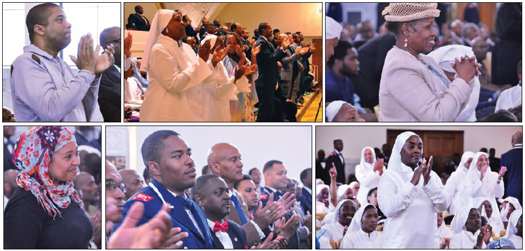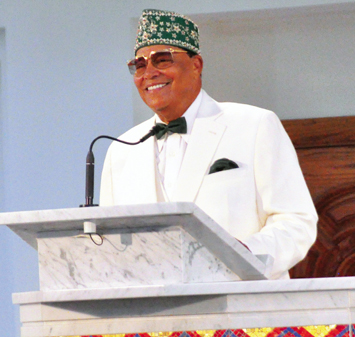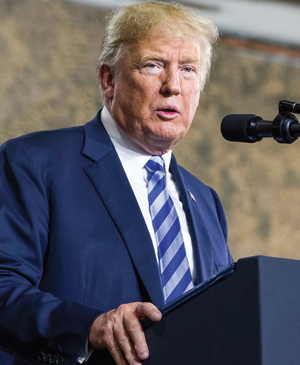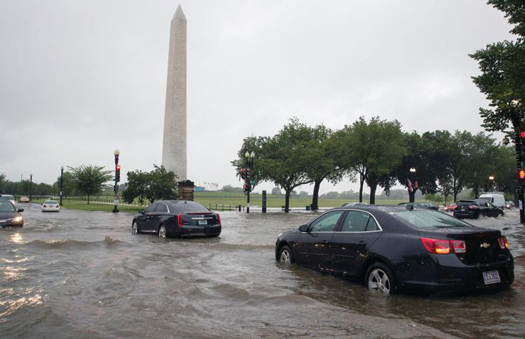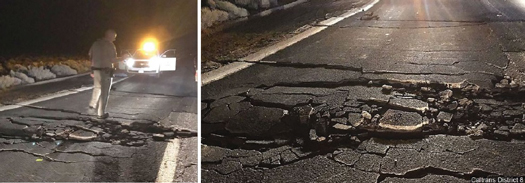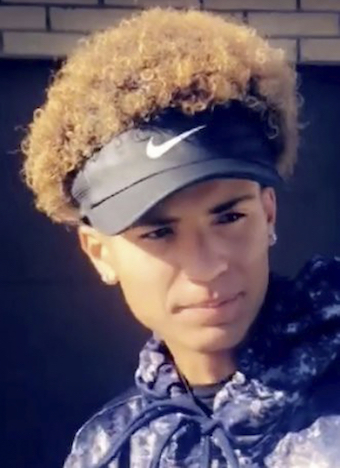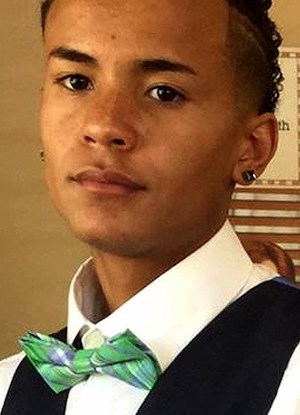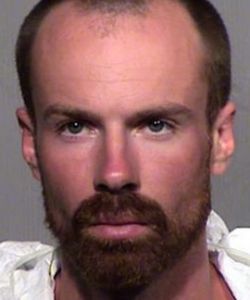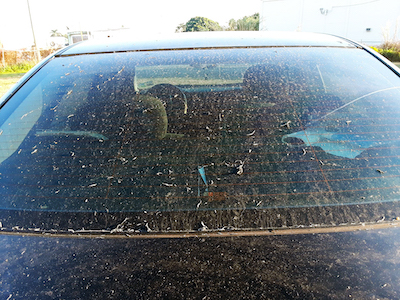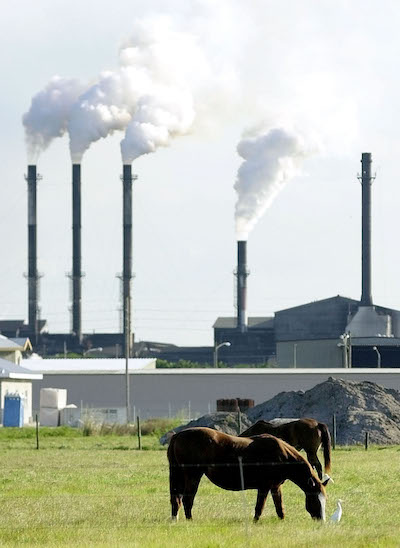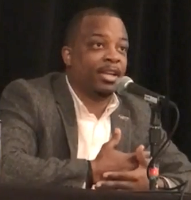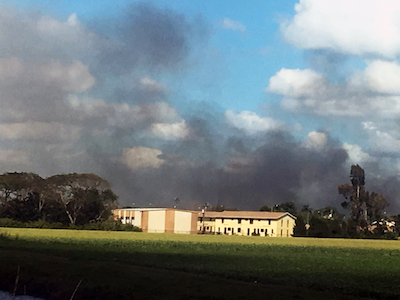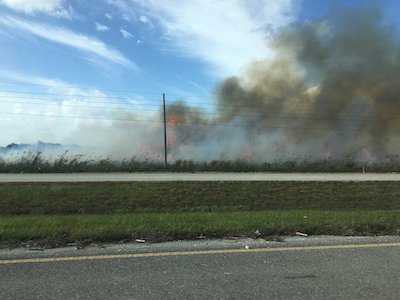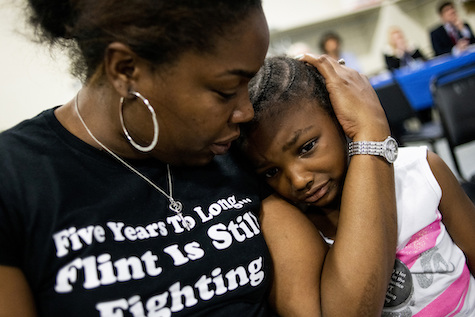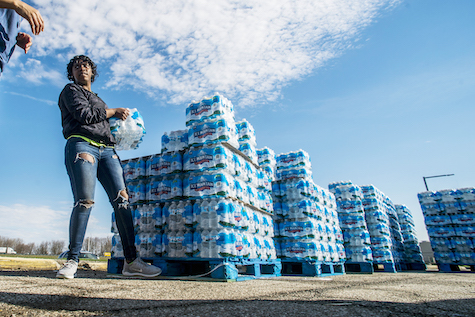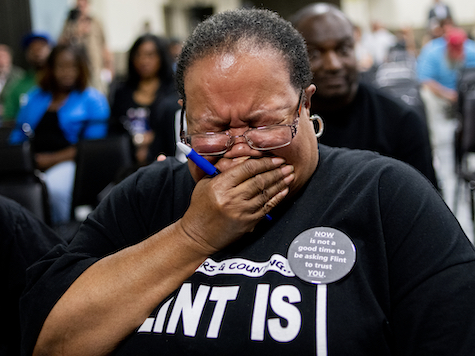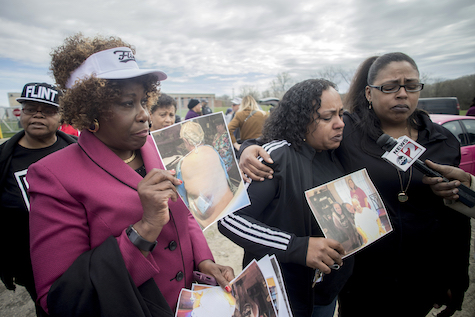Black voters, Black issues and the 2020 election
By Starla MuhammadManaging Editor @simplystarla23
DETROIT—It happens every presidential election cycle like clockwork. Political candidates vying for the highest office in the land begin scrambling for the attention of one of the most significant constituencies in U.S. politics—Black voters. Black people, particularly Black women are unabashedly viewed by political analysts and observers as the backbone of the Democratic Party. They’ve proven it time and time again.
As the 2020 election looms and Democratic Party candidates jockey for position to become the nominee in the frantic bid to unseat President Donald Trump, the scramble is underway.
Several of the 20-plus candidates have descended on national Black conventions and conferences, rolled out Black agendas and plans, appeared on the popular hip-hop radio show The Breakfast Club and have even forcefully broached topics of White supremacy and systematic racism as they increase efforts to “secure the Black vote.”
In the last presidential election of 2016 Blacks voted overwhelmingly (90 percent) for the Democratic candidate, including comparable shares of Black men (88 percent) and Black women (92 percent), reported the Pew Research Center. The country’s first Black president, Barack Obama served two terms largely due to Black voter support and turnout. While former Vice-President Joe Biden still enjoys a healthy lead among older Black voters, that lead is being challenged, though remotely, by Senator Kamala Harris. Younger Black voters are not sold on Mr. Biden. Others are also trying to gain ground with Black voters.
Just ahead of the second scheduled Democratic debates held July 30 and 31, candidates made rounds at major Black gatherings for the National Urban League, Rainbow Push, National Action Network, NAACP and the South Carolina Democratic Party Convention. In the upcoming months, photo ops at soul food establishments, stumping with members of the Congressional Black Caucus and speeches from pulpits at Black churches will most certainly be on the schedule of several presidential hopefuls.
However, just as in years past, questions on what Black folks can and will get in return for their loyalty remains to be seen.
What should Black voters demand and what are the key issues they are analyzing?
It is clear Black Americans are not a monolith when it comes to what issues they value most. Answers vary, depending on geographic location, age, socio-economic background and other variables. Criminal justice reform, student loan debt, wage and income equity, foreign policy, education, reparations and environmental justice are just a handful of the issues Black voters are concerned with. And, for some, having a president other than the current occupant of the White House is all they want. A June survey commissioned by the Black Economic Alliance gave a glimpse into what some Black voters felt was important when it comes to advancing economic opportunities for them and their families. The survey found a three-way split on the top issues on the minds of Black American voters, with 77 percent of respondents saying affordable health care, college affordability and creating more jobs with benefits were “extremely important issues,” reported Politico.
The Final Call interviewed Black voters, activists and analysts at the 110th NAACP National Convention held July 20-24 in Detroit about critical issues and the outlook for 2020.
“It don’t take no Ph.D. to figure this out,” Dr. Wendell Anthony told a crowd prior to the Presidential Candidates Forum at the convention. He was recounting what he told a reporter that asked him what Black people wanted. “We want healthcare just like everybody else, we want good jobs like everybody else, we want income equality like everybody else. What the hell do you think we want? We want a life, like everybody else!”
Dr. Anthony, pastor at Friendship Chapel in Detroit, serves on the NAACP National Board of Directors and is president of the Detroit Branch NAACP, the largest branch in the country.
“This ain’t difficult, there is not no magic to this. We want what everybody else have. We want to be able to have a good house, a good community, good schools, good education, live safely and when we get stopped by the police we don’t want to have to go home in a box! We want the same damn thing everybody else wants!” he said.
Ten presidential candidates spoke at the July 24 forum in Detroit: Mr. Biden, Sen. Kamala Harris, Sen. Elizabeth Warren, Sen. Cory Booker, former HUD Secretary Julian Castro, Mayor Pete Buttigieg, Sen. Amy Klobuchar, former Rep. Beto O’Rourke, Sen. Bernie Sanders and Republican Governor Bill Weld. Moderated by journalist April Ryan, each candidate answered questions on a variety of issues.
Sen. Harris, Sen. Warren and Mayor Buttigieg have introduced some semblance of Black-targeted plans and policies they vow to implement if elected president. Sen. Harris recently touted her plan which calls for a $60 billion investment in Historically Black Colleges and Universities. She is an alumnus of Howard University, an HBCU. The California senator proposed a plan to spend $12 billion on entrepreneurship programs aimed at the Black community. Mr. Buttigieg introduced his Douglass Plan, named for abolitionist Frederick Douglass as “A Comprehensive Investment in the Empowerment of Black America.” It encompasses a variety of areas including economic investment, healthcare, education and criminal justice reform. Sen. Warren proposed her plan to address the economic hardships of “women of color,” Blacks, Latinas, Native Americans and Asians.
Media personality, political commentator and entrepreneur Roland Martin explained that key voting issues vary and ultimately it is a personal decision.
“If you’re an African American that lives in a rural part of the country, if you live in a city, if you’re a homeowner versus a renter; you’re a student versus somebody who’s never gone to college, so it varies. So, what I would suggest is for the individual to sit down and say, ‘what are the three most important things to me?’ ” he told The Final Call.
“Look at whether it impacts your family, whether it affects your community, your city, your state, and then go from there. They may be local issues. Then the question is how that person does who is in office, how will they impact that particular issue because a lot of people don’t know how to connect the dots. So, we’re not a monolith and so we have different interests and concerns.”
For 18-year-old college sophomore Darion Dawson, he has one concern: student loan debt. Any candidate proposing free college or drastically reducing college debt has his attention. “I’ve been struggling with going to college. It’s very expensive but it’s just crazy that you have to be incarcerated in order to get free education. Why can’t you get free education while being out of jail, which is good,” said the mechanical engineering major. He is from San Francisco but is attending Xavier University in Louisiana.
Mr. Dawson wants the next president to not be as divisive as Mr. Trump. “I look for a candidate more worried about getting the people together and making the country a better place for all people, especially us Black people,” he added.
Michael Childress agrees. He is president of the DuPage County NAACP just outside Chicago. “I think the number one issue that affects Black people and we don’t seem to realize it, but it’s really presidential oversight because this guy has pretty much said he can do whatever he wants. If a person gets to the point where he can do whatever he wants, that means he has no boundaries. And usually when you run across people with no boundaries when they turn their wrath on someone, it’s usually us as Black people, people of color, the powerless, those are the people that they’re really going to take advantage of and the tool that they’re using is racism,” said Mr. Childress.
“It goes, to me, deeper than the health care, which is a problem, kids in the border, that’s a problem. But when you have a guy that thinks he’s pretty much God, I don’t see much difference between him and Hitler. I mean what’s to stop him in a second term from building the ovens, the concentration camps? He’s already started them now. Who’s going to stop him if we don’t get him out of there in this next term? He’s already defied every subpoena, every rule of law. Again, there’s no boundaries to what he feels he can get away with.”
Environmental activist Mustapha Ali said as he travels the country problems of racial disparities in the environment are still prevalent.
“We have 200,000 people dying prematurely from air pollution. We have water quality issues and infrastructure issues inside of our communities that are poisoning us and putting our lives in danger and putting our children’s lives in danger. We should also be, when they’re having these conversations about jobs, we should be very clear that when people talk about a new clean, green economy, that we want to make sure that we have ownership in that space. That less than two percent of the businesses that have been created, you know, and wind and solar and all these other things that are important that people talk about, are owned by people of color,” said Mr. Ali.
“When we get to African Americans, that number shrinks even more. So, we’ve got to be focused on making sure that there will be accountability if we are not given the opportunity to create our own businesses in this space,” he added.
When asked what Black voters must do to hold those they support and elect accountable for the promises they make, Mr. Ali said it must be a collective effort. “Beyond a conversation, I think that we should be actually pulling together all of our various organizations that we have trust in. And we need to be putting together the plan of the individuals that we want hired in the next administration. Who are the African Americans that should be running the Environmental Protection Agency, should be running HUD, should be running the Department of Labor, that should be running CDC?” he continued.
“We should be also be looking at the White House and the positions that exist inside of there. What we should also be focused on for these campaigns and other types of positions that sometimes are forgotten we need to make sure that our folks are the ambassadors, as well, especially to our own countries and others. So, there are a number of different positions that we should be putting forward a list of names and then holding people accountable if a significant number of those individuals are not being hired,” said Mr. Ali.
In Philadelphia, Black voters are concerned about rebuilding distressed communities said Rodney Muhammad, president of the Philadelphia NAACP. “We’re witnessing urban decay. The biggest cry in the city right now is gentrification. Too often by the time we cite gentrification, the arrow has already left the bow and many deals have already been made and it’s going to be a real uphill climb for us,” he said. There is also the concern of growing gun violence and a growing distrust Blacks have toward government and elected officials, he explained. Mr. Muhammad is also the student minister of the Nation of Islam’s Muhammad Mosque No. 12 in Philadelphia.
Terrance Williams of Gary, Indiana, works in security. His main concern where he lives is affordable housing. “In Gary, we’re hurting,” he said. There are so many abandoned houses as the result of the once vibrant steel industry in the city collapsing, so it has been tough, he said. He has not decided on any particular candidate to throw his support behind yet.
“They (candidates) speak to the separation of the children from their parents (at the border) here in the United States as though it is something new to this country and it’s not,” said Yolette Green, a union activist from New York. “Our people have been separated from their land and from their families and we were brought here against our will and it is as though that is not prevalent today as though it has been forgotten. Other people’s plights have been presented as more important than ours when in this country we are still enslaved, mentally and physically,” she said. Reparations for Black people is an important issue for her and free education for Blacks would be a start, she said.
Janis Dunn is from the Dallas-Fort Worth area and is president of Tri-Cities NAACP, which covers Cedar Hill, Desoto and Duncanville, Texas. Criminal justice reform and reparations are key areas for people in her area. She said for candidates that talk about criminal justice reform, “we want to make sure it comes to fruition.”
Blacks must continue to mobilize even after elections to pressure candidates to keep their word, she explained. “We register a lot of people to vote but what we don’t do is get them back to the polls. We can register thousands and thousands but if we don’t get them back and excited about it then we’ll never change anything. It’s about mobilization.”
Tammy Greer Brown lives blocks from where Eric Garner was choked to death by a New York cop. The Justice Department recently announced it would not charge the officer in his death.
She serves as advisor for the NAACP Youth Council for Staten Island New York. She is also on the steering committee for Moms of Black Boys United, a group that fights against police brutality and misconduct and fights for law enforcement policy changes on local, state and national levels. Criminal justice reform and education are the issues most critical to her.
“I have a Black son who has been arrested, who has been targeted,” she said. “My concern more than anything is that Black men and my son have been targeted. I’m tired of seeing our Black men die. I’m tired of seeing our Black males die; not just Black men but our Black boys die and I’m tired of seeing my daughter, who’s afraid of the police, come after school and be targeted to identify suspects.”
Ben Chavis, president and CEO of the National Newspaper Publishers Association, said Black organizations must work more in unity in their work for the whole. “The solutions to our problems are in our own hands. They’re not in the hands of the White House. They’re not in the hands of corporate America; they’re in our own hands,” said Dr. Chavis, whose group is composed of Black newspaper owners across the country.
“Our greatest challenge is to turn to one another, not against each other. The absence of unity is going to affect voter turnout for 2020, it’s going to affect public policy. We now have more brothers and sisters in the Congress in the United States than ever before. But the inaction of legislation like the Reparations bill (HR 40) is coming to support the study. We already know the answer is that we should have massive reparations to repair the damage that has been done. While the larger society needs to study the problem, we already know the problem because we’ve lived it,” added Dr. Chavis, who previously served as executive director of the NAACP.
“I like the theme of this convention, ‘When We Fight, We Win.’ But we have to be clear on what we’re fighting for, not just what we’re fighting against. Everybody’s against Trump but what are we for? It has to be freedom, justice and equality, economic empowerment, economic development and overall unity not only in America for Black people but throughout the African Diaspora. Unity for African people all over the world ought to be our top priority.”
